Fact for the day…The Afghan war lasted nine years. It resulted in the death of 15,000 Russian soldiers. In eight months in Ukraine, Russia has already lost 71,000 lives. One thousand died in a single day last week.
1. S&P 500 Ex-Top 10 Tech Names Historical Chart

Dan Stratemeier Managing DirectorEquities, Event Driven Strategies Jefferies LLC
2. Bond Volatility Index +110% One Year.

https://www.google.com/search?q=move+index+chart&rlz=1C1CHBF_enUS898US898&oq=move+index+chart&aqs=chrome..69i57j35i39j0i22i30l4j0i390l4.2728j0j7&sourceid=chrome&ie=UTF-8
3. 20 Year Treasury Year to Date -13% More than S&P 500
20 Year Treasury -35% YTD vs. S&P 500 -22%
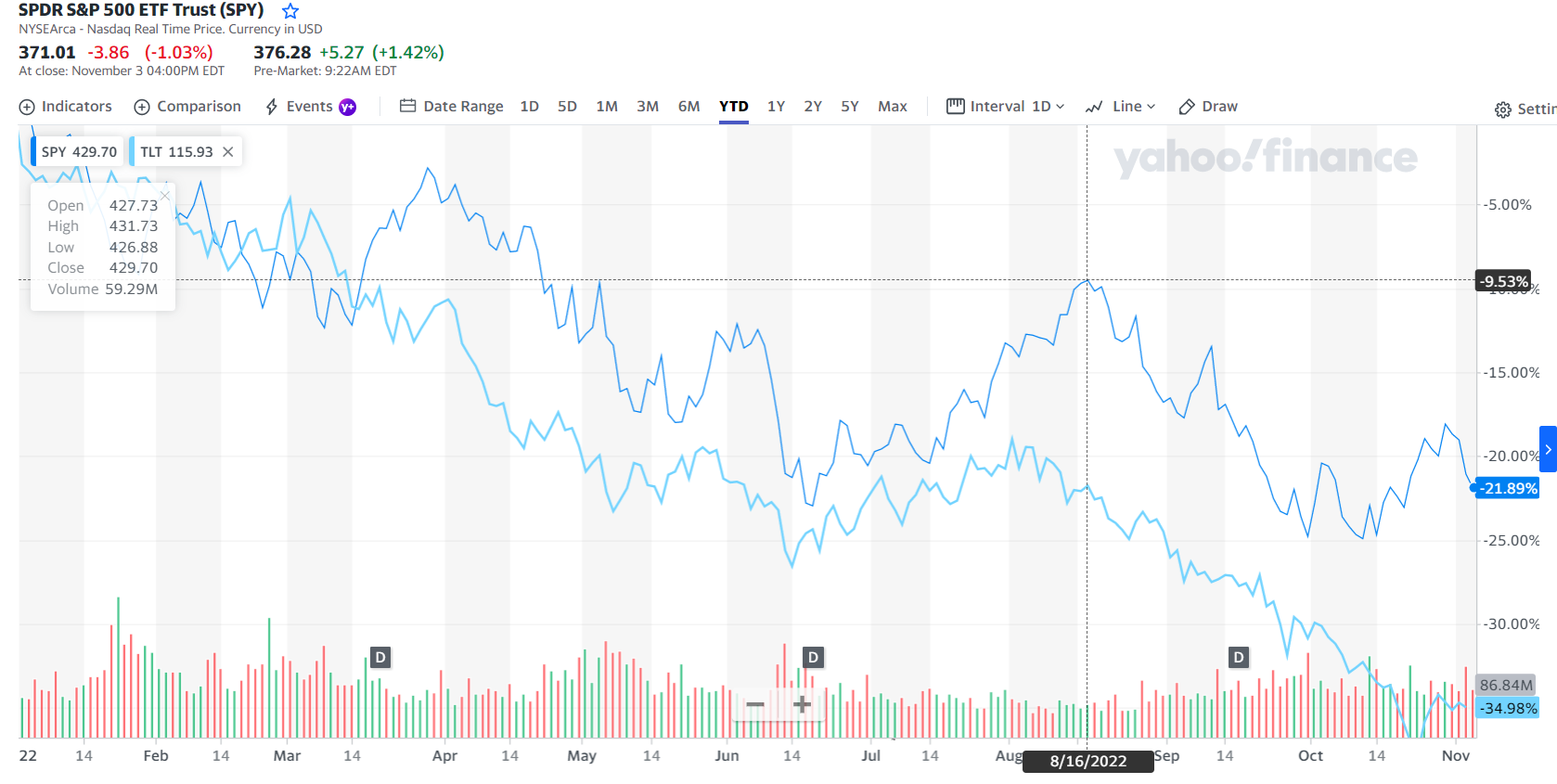
4. Euro Stoxx Large Cap Stocks Nowhere for 20 Years
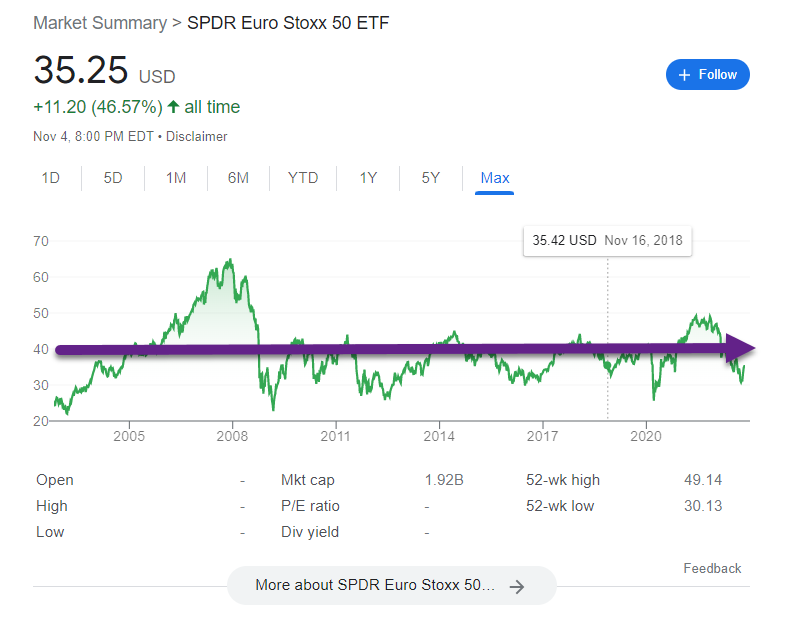
https://www.google.com/finance/quote/FEZ:NYSEARCA?sa=X&ved=2ahUKEwiS_IOKoZz7AhWUmYkEHRaEDQUQ3ecFegQITxAg

5. Shale Unemployment Back to 2005 Levels.
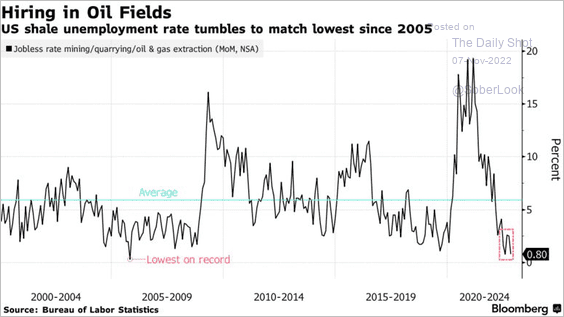
From The Daily Shot Blog https://dailyshotbrief.com/
6. FED Looking at $3.9 Trillion in Balance Sheet Shrinkage
Barrons By Lisa Beilfuss Markets are on two counts oblivious to the significance of QT, says Solomon Tadesse, head of quantitative equities strategies North America at Société Générale. His model says that if the Fed is to bring inflation back to its 2% target, then some $3.9 trillion in balance-sheet shrinkage must accompany a policy rate of at least 4.5%. That amount of QT, he says, is equivalent to an additional 4.5 percentage points of tightening.
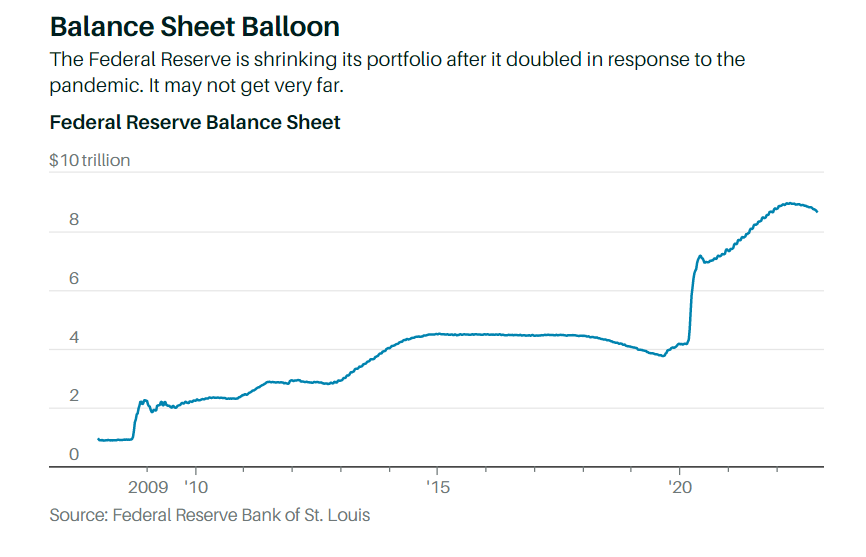
Why Higher Interest Rates Won’t Solve the Inflation Problem https://www.barrons.com/
7. Central Banks Bought Double the Previous Record of Gold Last Quarter
But, as we detailed earlier today, central banks bought 399 tons of bullion in the third quarter, almost double the previous record, according to the World Gold Council.

https://www.zerohedge.com/commodities/gold-market-roiled-mystery-buyer-waves-300-tonnes
8. Residential Real Estate Stats
JP Morgan Guide to the Markets
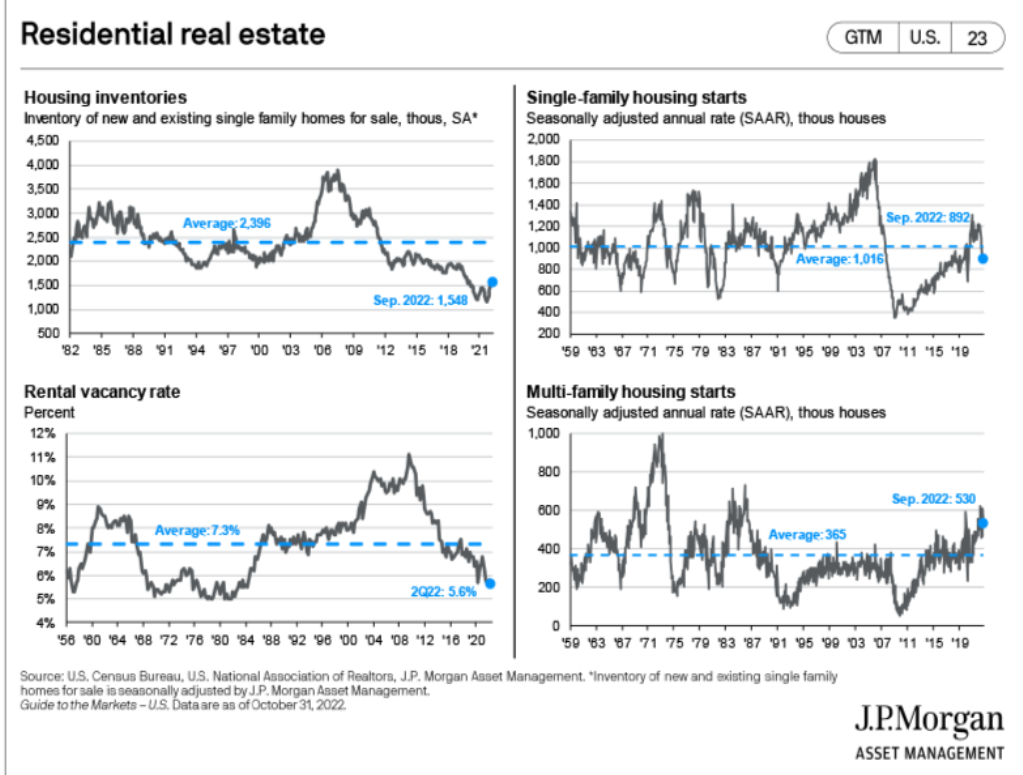
https://am.jpmorgan.com/us/en/asset-management/adv/insights/market-insights/guide-to-the-markets/
9. How Russia Pays for War
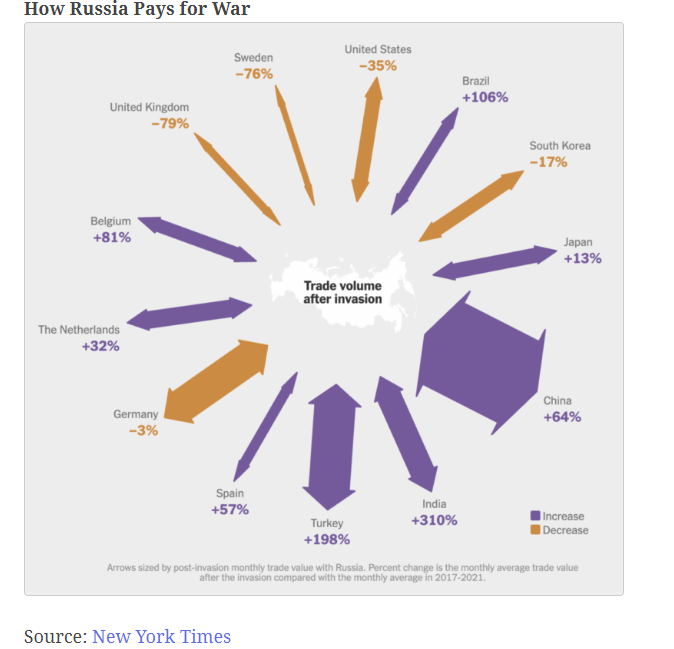
Found at Barry Ritholtz The Big Picture 10 Sunday Reads – The Big Picture (ritholtz.com)
10. The Fundamental Difference Between Decisions and Actions: Why Jeff Bezos Says Your Goal Is to Make 3 Good Decisions per Day
Because most ‘decisions’ shouldn’t be open to consideration, much less deliberation.
BY JEFF HADEN, CONTRIBUTING EDITOR, INC.@JEFF_HADEN
Jeff Bezos. Photo: Getty Images
You probably feel like you make dozens of decisions every day, especially when the buck stops with you. Whether to expedite shipping on an order. Whether to send a certain email. Whether to address an employee’s questionable behavior.
And definitely on a personal level, because that’s when the buck always stops with you. Whether to get up and going or hit the snooze button. Whether to ditch the food you packed and go out for lunch instead.
But those aren’t really decisions, because you already know what to do. Nearly everything we “decide” already has an answer.
Going to miss the delivery date? Expedite the shipping. Need to make sure something is clear? Send the email. Want to build a better team? Address the behavior now; performance issues almost never take care of themselves.
The same is true for personal “decisions.” The nine minutes of sleep you get after hitting the snooze button isn’t restorative sleep; you’re better off setting your alarm for nine minutes later. (Or going to bed earlier.) The food you packed is — or should be — an integral part of your healthy lifestyle; going out for lunch when you didn’t plan to is almost never better for you. (If only because you’ll feel guilty later for having given in to temptation.)
That’s the beauty of processes and routines. Rules aren’t restrictive. Rules are liberating, because rules free you up from having to make “decisions.” Instead of wasting mental energy and willpower on “choosing,” all you have to do is act.
Over time, those actions become habits. Then you definitely don’t need to make a decision, because habits are effortless. (In both good and bad ways, obviously.)
So what happens when you strip out all those “decisions”?
Three Great Decisions
As Jeff Bezos says, you don’t get paid to make thousands of decisions every day. You get paid to make a small number of high-quality decisions.
As Bezos wrote for Fast Company:
You need to be thinking two or three years in advance, and if you are, then why do I need to make a hundred decisions today? If I make three good decisions a day, that’s enough, and they should just be as high quality as I can make them.
Warren Buffett says he’s good if he makes three good decisions a year, and I really believe that.
Clearly there’s a huge difference between making three good decisions per day, and three good decisions per year. Yet that difference is also easy to explain.
Launching a startup, like starting anything from a relatively blank slate, requires making seemingly countless decisions. Infrastructure, branding, pricing strategies, marketing strategies–everything is up in the air. It’s impossible, as Bezos says, to “work in the future” when you haven’t figured out the present.
But you’ve made a decision; you no longer have to “decide.” Barring evidence that decision was wrong and needs to be revisited, all you have to do is act. With time, the number of decisions you need to make every day should rapidly decline.
Which means you can focus all that mental energy on making strategic, rather than tactical decisions. You can focus on making decisions that set the course for the next months, or even years. To start a business, or not. To launch a new product line, or not. To open a new location, or not.
To take your life — health, education, relationships, etc. — in a new direction, or not.
Making fewer “decisions” frees you up to think about the things that will make the biggest difference in your professional and personal life.
Think of it that way, and you really don’t need to make more than three good decisions a year.
Especially if those decisions help you become the person you want to b